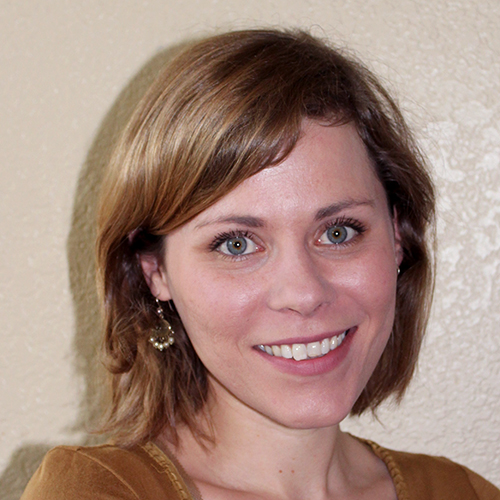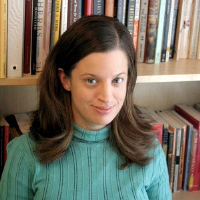
Article
February 13, 2020
Mackenzie Eldred
Students Save Over $63,000 in Course Materials
Four faculty members helped approximately 450 students enrolled in their fall 2019 classes save a combined $63,775 in textbook fees by adopting open educational resources into their curriculum after the Colorado Department of Higher Education awarded grants for the project.
Four University of Northern Colorado faculty members helped approximately 450 students enrolled in their fall 2019 classes save a combined $63,775 in textbook fees by adopting open educational resources (OER) into their curriculum after the Colorado Department of Higher Education (CDHE) awarded grants for the project.
The $2,000 grant award per faculty member was used to offset the time and expense required to adopt or adapt OER into a course and redesign an undergraduate course to align with open pedagogy principles.
The four faculty members who received and used the $2,000 OER grant and transformed their courses by using free and openly-licensed resources, such as open textbooks, videos, images, lesson plans and test banks, were: Molly Desjardins, associate professor of English; Bailie Peterson, assistant professor of Philosophy; Cassendra Bergstrom, assistant professor of Psychological Sciences; and Angela Steele, senior lecturer of Mathematical Sciences.
Student savings were calculated by multiplying the number of students in the four courses by the cost of the book the students would have had to buy if OER were not used.
Bailie Peterson

Peterson adopted OER into her PHIL 100 Introduction to Philosophy course and used an open resource textbook as well as some works in the public domain and contemporary journal articles. Peterson said the biggest change was adopting more open-teaching practices, such as finding more ways for students to learn from each other.
“Most students had very positive feedback, and the response overall has been very good,” Peterson said. “In a couple cases, students preferred physical books, but all resources were printable, which helped quite a bit. I also had many students thank me specifically about the lack of cost, and a few gave positive feedback about the more interactive assignments.”
Cassendra Bergstrom

Bergstrom used an open textbook on lifespan development in her PSY 230-900 and -970 Human Growth and Development courses. The textbook included video links, PowerPoint video and transcripts.
“I asked students specifically to reflect on the OER materials and their thought on the content,” Bergstrom said. “I only received positive responses. Many students said they appreciated having the textbook content directly within the Canvas site for the course. Almost every student mentioned the financial impact – that they didn’t have to buy or rent a textbook that they might not use anyway – as stated by a few.”
Angela Steele

Steele is a senior lecturer and the coordinator for the MATH 120 Mathematics and Liberal Arts course and used two OER eBooks online: “Math in Society” by David Lippmann and “College Mathematics for Everyday Life” by Inigo. OER materials were also used in eight sections of MATH 120 with about 280 students enrolled.
“Ultimately, I wanted to switch to OER because the cost of books was too expensive,” Steele said. “The cost of our MATH 120 book was increasing each semester, plus MATH 120 is a terminal math course, so it didn’t make sense for students to spend $135 for an eBook and online homework system only to be used for a few months. Students personally told me they liked that they didn’t have to pay for a math book because college was already feeling overwhelmingly expensive.”
Molly Desjardins

Desjardins used an anthology textbook in her ENG 345 Literary Theory class to help students save money after first hearing about the OER award application through an email.
“One hundred percent of the students said they would choose an OER textbook over a regular textbook and want to see more OER materials in the future,” Desjardins said.
The four $2,000 award recipients will present a poster on their experiences with OER at the 2020 CETL Teaching & Assessment Fair on March 24.
As part of the grant, other UNC faculty members received a $200 award to review an open textbook. The purpose of the $200 award was to introduce faculty members to OER and encourage them to adopt or adapt the open textbook they chose to review. The faculty members chosen for this grant were Bergstrom, Aaron Henrichsen, assistant professor of Finance; Junpyo Park, assistant professor of Economics; and Chelsie Romulo, assistant professor of Geography, GIS, and Sustainability.
Jen Mayer, associate professor of University Libraries and a recent appointee to the state’s OER Council, said textbook and supporting course material costs are a real barrier to students. As more courses utilize OER, students will have a choice about their costs.
In a 2018 University Libraries student survey with 921 total responses, 51% of students reported that they received no financial-aid assistance in buying textbooks. According to a report on OER by CDHE, $550,000 of awarded grant money allowed 23,958 students in Colorado to be enrolled in courses with OER materials, with a projected $3.4 million cost-savings for students. The state report on student savings was compiled by Lobna Alsrraj, a recent UNC graduate in Political Science and an intern at CDHE’s OER Policy and Research.
“I wish students knew about the benefits of OER,” Alsrraj said. “It’s not just monetary benefits; the benefit goes beyond cost, which is really cool. At UNC, I hope students are more aware of open education and more faculty adopt open education in their classrooms. I really think it’s important for educators and faculty members to adopt it and that students are aware of and advocate for OER.”
Mayer said OER also gives faculty more freedom to enhance their curriculum, the ability to bring in more diverse voices, involve students with the creation of assignments and create more interactive assignments that are openly accessible globally for future students and faculty to build on, revise, remix and reuse.
UNC was also recently awarded a second CDHE OER grant. Mayer and Oscar Levin, associate professor of Mathematical Sciences, submitted UNC’s grant application for the second round of CDHE funding. This grant will allow UNC faculty to leverage OER for more courses, and build on the work of the first OER grant. The UNC Provost has also pledged $10,000 to support faculty, which augments the benefits of the grant.
Read the latest blog post about OER on the University Libraries website. More information about the OER Committee.



